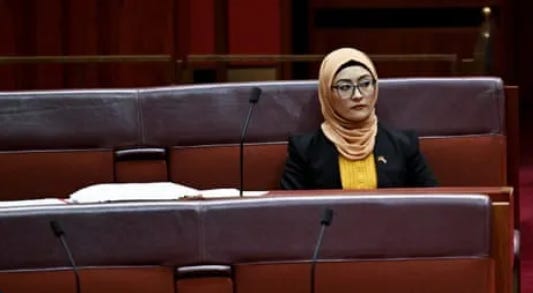The term multiculturalism has become a loaded word in Australia over recent years. It evokes a range of emotions and reactions from various sectors of society. From the idealistic proponents of a harmonious melting pot to the staunch critics who argue for a more unified, nationalistic approach, multiculturalism remains a contentious issue that warrants deeper examination.
From the early days of European settlement, Australia had a long history of exclusionary policies, epitomized by the White Australia Policy. This policy, enacted in 1901, aimed to preserve Australia's cultural and ethnic identity by restricting non-white immigration. However, as the world pushed towards globalism, so too did Australia's ruling class. The White Australia Policy was gradually dismantled, culminating in its official abolition in 1973.
Since then, Australia has experienced a drastic change in its demographic landscape. The nation has become increasingly diverse, with people from various cultural, ethnic, and religious backgrounds calling Australia home. While this shift has undoubtedly enriched the nation's cultural tapestry, it has also brought about challenges that cannot be ignored.
As a result of the influx of diverse populations, ethnic diaspora communities and voting blocs have emerged in Australia. These groups often prioritize their cultural and religious identities over national cohesion, leading to a fragmented society that struggles to find common ground. This phenomenon is obvious in various parts of the country, where specific ethnic communities hold significant political sway, often advocating for policies catering to their specific interests rather than the broader national interest.
These ethnic diaspora communities and voting blocs can be detrimental to the overall unity and stability of the nation. They foster a sense of division and resentment among different groups, as well as creating a power imbalance in the political landscape. This can lead to a situation where the interests of a particular ethnic group are prioritized over the needs of the broader Australian population.
It is a fundamental truth that a nation's strength lies in its unity and social cohesion. For a nation to thrive, its citizens must share a common identity and a sense of belonging. This is best achieved through a shared culture, language, and set of values. It is here that the concept of multiculturalism falls short.
As history has shown, a society built on a foundation of diverse and competing cultures, religions, and ethnicities is inherently unstable. This is not to say that Australia should turn its back on the diverse communities that have contributed to its growth and prosperity. Rather, it is to argue that Australia must prioritize the preservation of its core identity, which is rooted in its Anglo-Celtic heritage and the values that have shaped the nation.
To achieve a more cohesive and unified Australia, it is imperative that the nation's immigration policies be revaluated and reformed. The current system, which prioritizes multiculturalism over national identity, is unsustainable and detrimental to the long-term stability of the country.
A comprehensive immigration reform should prioritize the needs and interests of the Australian people. This includes ensuring that newcomers adhere to the nation's core values, respect its traditions, and contribute positively to its economy and society. Additionally, it is crucial that Australia maintains control over its borders, enforcing strict measures to prevent illegal immigration and the influx of individuals who may pose a threat to national security.
Australia should consider the possibility of mass deportations and remigration for individuals found to be in violation of the nation's laws or who have failed to assimilate into Australian society. This measure, while drastic, would serve as a strong deterrent to those who may seek to exploit Australia's current immigration system and undermine national identity.
Furthermore, Australia should explore the concept of remigration, which involves the voluntary return of individuals to their countries of origin. This could be achieved through financial incentives or other forms of support, offering an alternative for those who may feel unable to fully integrate into Australian society or who may prefer to return to their cultural roots.
The ideal of multiculturalism, while well-intentioned, is flawed and ultimately detrimental to the long-term stability and prosperity of Australia. By advocating for a more unified and nationalistic approach, Australia could foster a stronger sense of identity and belonging among its citizens. This, in turn, would lead to a more cohesive and prosperous nation, capable of facing the challenges of the 21st century and beyond.
FarCue





